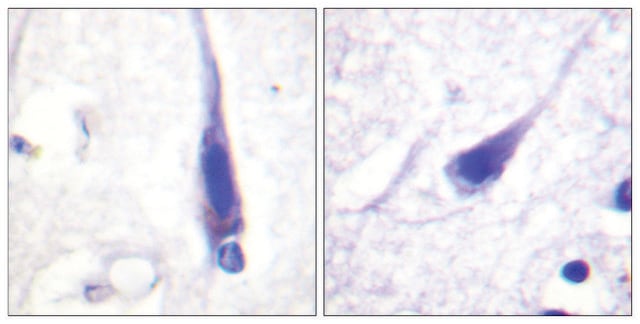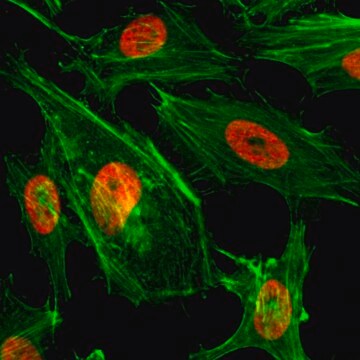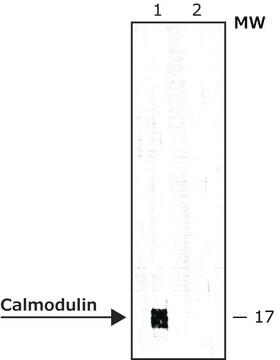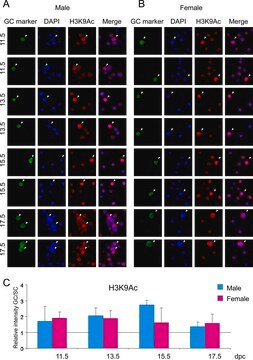05-173
Anti-Calmodulin Antibody
Upstate®, from mouse
Synonym(s):
calmodulin 1, calmodulin 1 (phosphorylase kinase, delta), phosphorylase kinase, delta subunit
About This Item
Recommended Products
biological source
mouse
Quality Level
antibody form
purified antibody
antibody product type
primary antibodies
clone
monoclonal
species reactivity
pig, mouse, vertebrates, rat, human, bovine
manufacturer/tradename
Upstate®
technique(s)
immunoprecipitation (IP): suitable
western blot: suitable
isotype
IgG1
NCBI accession no.
UniProt accession no.
shipped in
dry ice
target post-translational modification
unmodified
Gene Information
human ... CALM3(808)
General description
CaM mediates processes such as inflammation, metabolism, apoptosis, muscle contraction, intracellular movement, short-term and long-term memory, nerve growth and the immune response. CaM is expressed in many cell types and can have different subcellular locations, including the cytoplasm, within organelles, or associated with the plasma or organelle membranes. Many of the proteins that CaM binds are unable to bind calcium themselves, and as such use CaM as a calcium sensor and signal transducer. CaM undergoes a conformational change upon binding to calcium, which enables it to bind to specific proteins for a specific response. CaM can bind up to four calcium ions, and can undergo post-translational modifications, such as phosphorylation, acetylation, methylation and proteolytic cleavage, each of which can potentially modulate its actions.
Specificity
Immunogen
Application
4 μg of a previous lot immunoprecipitated calmodulin from A431 RIPA cell lysate. Radioimmunoassay:
Use 10 μg/mL to detect calmodulin in the range of 200-300 ng.
Signaling
GPCR, cAMP/cGMP & Calcium Signaling
Quality
Western Blot Analysis: 0.1-1 μg/mL of this antibody detected calmodulin in RIPA lysates from human A431 carcinoma cells. Previous lots detected calmodulin in RIPA lysates from mouse 3T3 and L6 rat skeletal fibroblasts.
Target description
Linkage
Physical form
Storage and Stability
Analysis Note
Positive Antigen Control: Catalog #12-301, non-stimulated A431 cell lysate. Add 2.5µL of 2-mercaptoethanol/100µL of lysate and boil for 5 minutes to reduce the preparation. Load 20µg of reduced lysate per lane for minigels.
Other Notes
Legal Information
Disclaimer
Not finding the right product?
Try our Product Selector Tool.
recommended
Storage Class Code
10 - Combustible liquids
WGK
WGK 1
Certificates of Analysis (COA)
Search for Certificates of Analysis (COA) by entering the products Lot/Batch Number. Lot and Batch Numbers can be found on a product’s label following the words ‘Lot’ or ‘Batch’.
Already Own This Product?
Find documentation for the products that you have recently purchased in the Document Library.
Our team of scientists has experience in all areas of research including Life Science, Material Science, Chemical Synthesis, Chromatography, Analytical and many others.
Contact Technical Service








